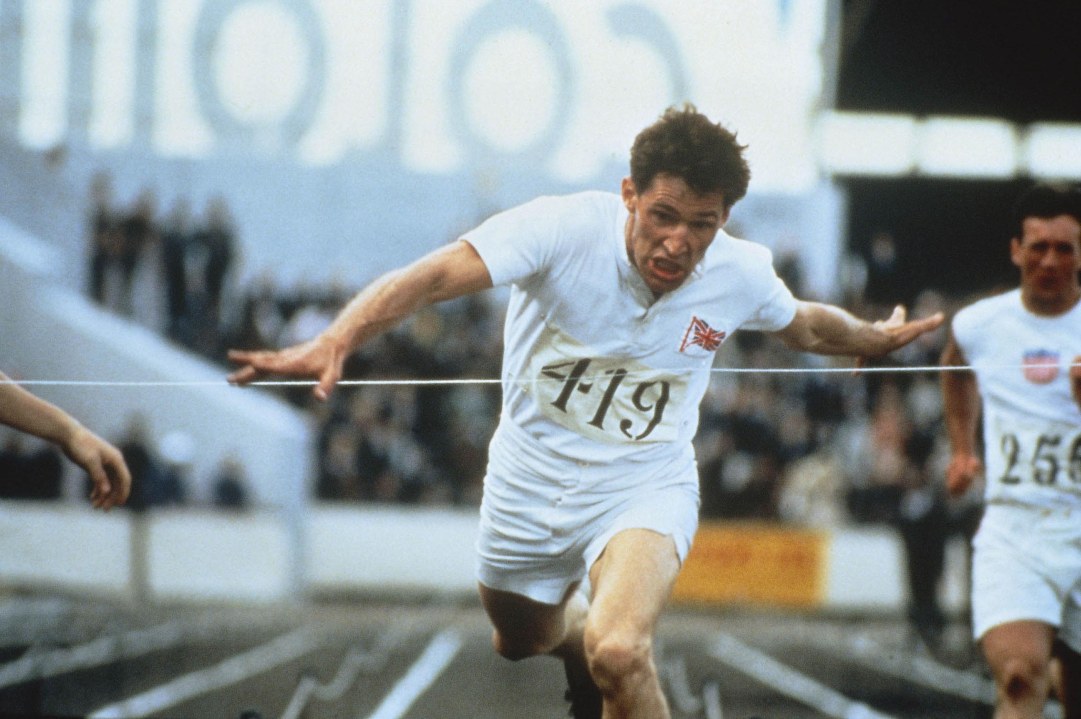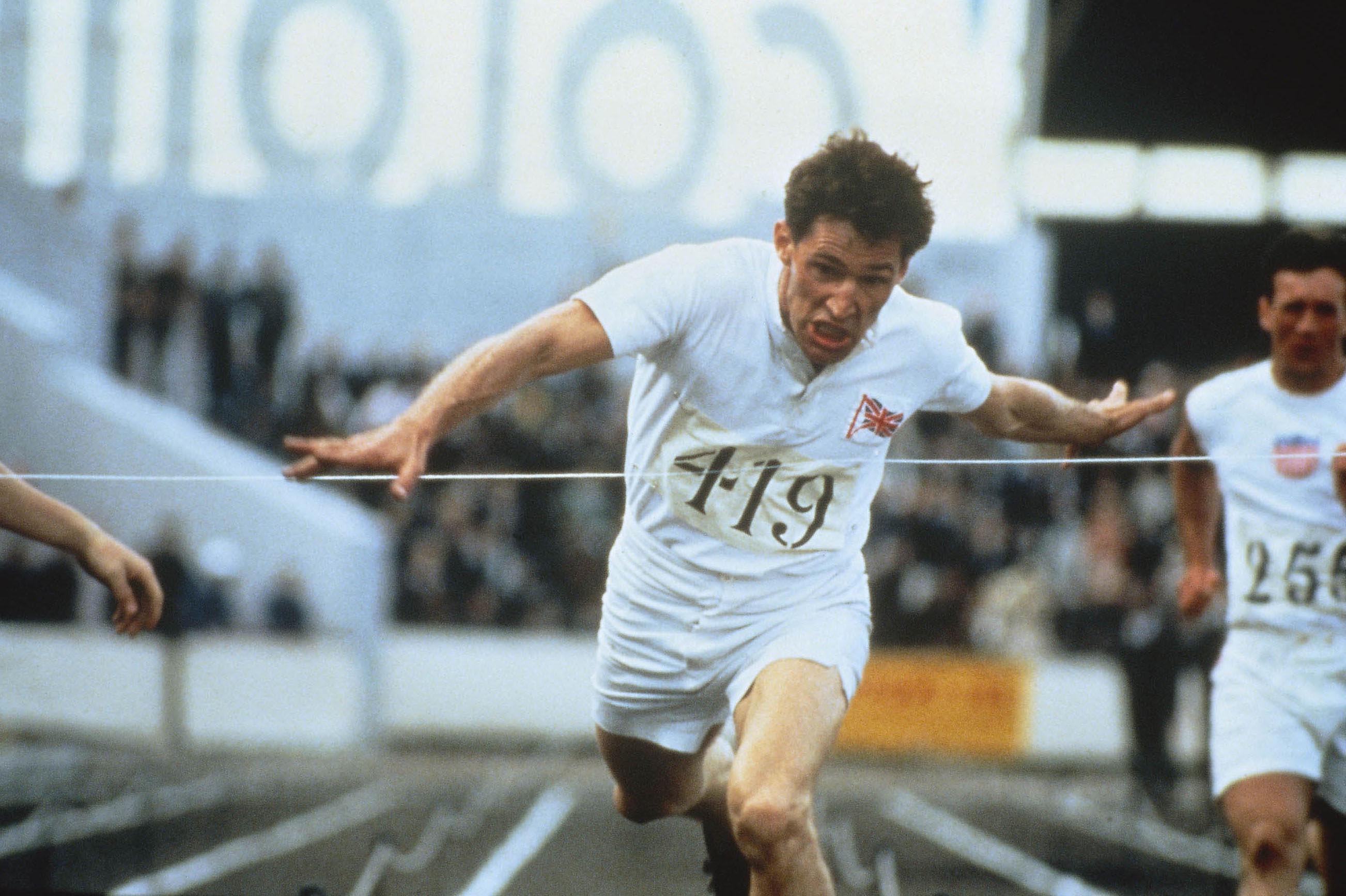Next week marks the 40th anniversary of Hugh Hudson’s Chariots of Fire, the Oscar-winning true tale of Olympic glory which captured the affections of critics and mass audiences alike. Fondly cited by everyone from Maggie Thatcher to Joe Biden, parodied by Mr. Bean, beloved and bemoaned for its Vangelis score and heightened slow-mo cinematography, Chariots reliably jerks tears from most filmgoers of a certain generation. Yet, four decades on, the film has lost none of its vitality, even for the newcomer. Indeed, so far from being a faded relic of its era, it still crackles with a sharp and nuanced screenplay that offers particularly apt food for thought in a news age dominated by debates over discrimination, both racial and ideological.
Though billed as a sports drama, the film is really a psychological character study of its two protagonists, Harold Abrahams (Ben Cross) and Eric Liddell (Ian Charleson). The young athletes clash early but chart their respective outsiders-against-the-establishment courses along parallel tracks. The son of a rich Lithuanian Jew, Abrahams drives the narrative, arriving at Caius College, Cambridge with a chip on his shoulder and flinging himself into his training with grim dedication. Liddell, the quintessential gentle-but-steely son of Scotland, is meanwhile more reluctantly prodded towards stardom but embraces his calling to model ‘muscular Christianity’ on the racetrack.
Forty years later, one wonders whether Sybil’s robust injunction to pick up one’s cleats and jog on, subtle bigotry be damned, would be appreciated in today’s milieu
Liddell’s struggle, somewhat fictionalized for dramatic effect, is the better remembered of the two. Perhaps the film’s most intense scene takes place not on the track but behind closed doors, as various dignitaries press him to violate his devout sabbatarianism for a key dash. Colin Welland’s dialogue is a writer’s master-class, sharp and barbed, balancing profundity with cutting wit. ‘That’s a matter for the committee,’ grumbles one peer when a resolution presents itself, whereupon another peer dryly reminds him, ‘We are the committee.’ Against the charge of ‘impertinence’, Liddell’s heated clapback that ‘the impertinence lies, sir, with those who seek to influence a man to deny his beliefs’ stings more sharply now than ever.
The obstacles Abrahams encounters are subtler, though greatly magnified in his own mind. He is a tortured soul, loudly claiming his birthright as ‘an Englishman first and last,’ yet smarting under what he perceives as constant anti-Semitic prejudice. No sideways glance or reluctant handshake is lost on him, and we as the viewers are meant to sympathise with his resentment, at least in part. His major standoff is a confrontation with the Caius and Trinity college masters, who curl their lips at his bourgeois approach to athletic excellence—hiring a trainer (Ian Holm, in a fine Oscar-nominated turn), pursuing notoriety in unabashedly individualistic fashion. This, they chide him, is not ‘the way of the amateur.’ The unspoken true source of their distaste is perhaps too-pointedly rammed home in John Gielgud’s inimitable tones after Abrahams storms out: ‘Well, there goes your Semite, Hugh. A different god, a different mountaintop.’
Yet, notably, Abrahams is not allowed to wallow in his resentment. The screenplay provides a lively foil in his future wife, Sybil Gordon (Alice Krige). Over dinner, when he explains his obsession as ‘a weapon’ against ‘being Jewish,’ she laughs in his face. When he laments that he is ‘semi-deprived’, she is unmoved: ‘That sounds clever. What does it mean?’ In today’s lingo, she invites him to check his privilege, bluntly suggesting that ‘being Jewish hasn’t done you any harm’.
Indeed, Abrahams’ hardest knocks come not from the establishment, but from his own peers on the track. After he loses to Liddell in their only race together, Sybil once more heaves him up from the mire of self-pity. ‘I was proud of you,’ she says, lovingly but firmly. ‘Don’t make me ashamed.’ At the games, Abrahams loses another key race by taking his eyes off the goal to look for a competitor. Liddell, by contrast, runs with joyfully oblivious abandon. As Abrahams watches him from the stands, the look of baffled astonishment in his eyes lingers and haunts.
Forty years later, one wonders whether Sybil’s robust injunction to pick up one’s cleats and jog on, subtle bigotry be damned, would be appreciated in today’s milieu. In the face of microaggressions, actual or imagined, the next generation is counselled to remain perpetually in young Harold’s jejune state of angst. They are no longer taught that the surest way to beat ‘the man’ is not to make beating the man the end of all their endeavours, but to make the well-earned success, the well-lived life, an end in itself. Herein, Chariots of Fire reminds us, is true victory.







Comments